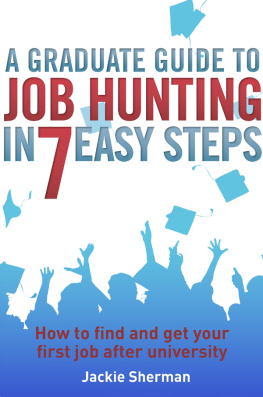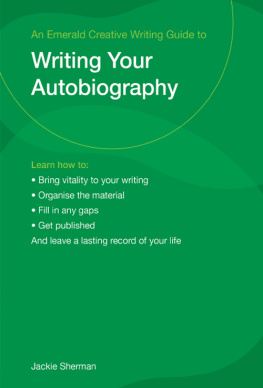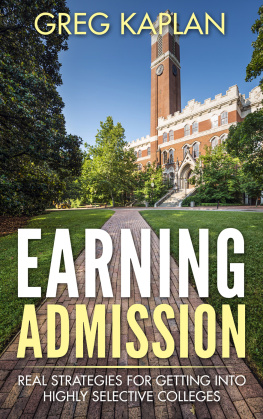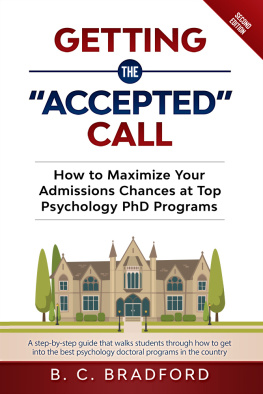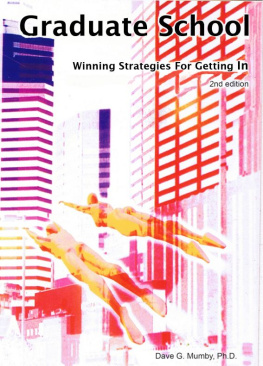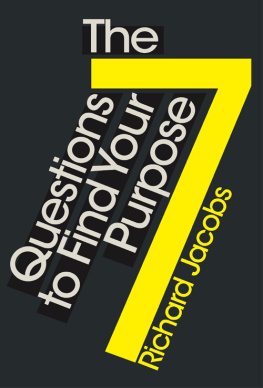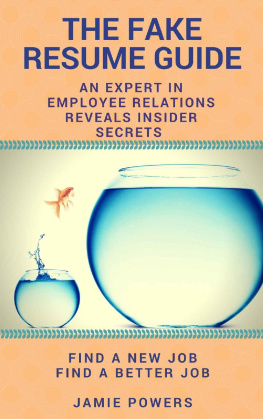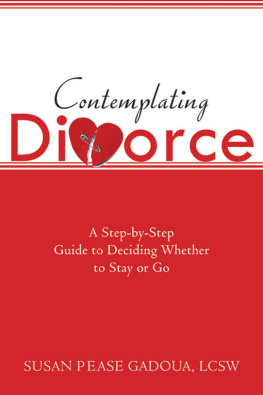Jackie Sherman has been an adult education tutor and writer since the mid-1990s. After a zoology degree and research experience, she spent twelve years as a university careers adviser and then ran her own business designing CVs. She has published over thirty books covering a wide range of subjects, including one on how to find work when youre over fifty.
Also available from How To Books
HOW TO WRITE AN IMPRESSIVE CV AND COVER LETTER
A comprehensive guide for the UK job seeker
Tracey Whitmore
WRITING A UCAS PERSONAL STATEMENT IN SEVEN EASY STEPS
A really useful guide to creating a successful personal statement
Julia Dolowicz
PSYCHOMETRIC TESTS FOR GRADUATES
Gain the confidence you need to excel at graduate-level psychometric and management tests
Andrea Shavick
HOW TO SUCCEED AT INTERVIEWS
Dr Rob Yeung
HOW TO PASS PSYCHOMETRIC TESTS
This book gives you information, confidence and plenty of practice
Andrea Shavick
CREATING YOUR FIRST EVER CV IN SEVEN EASY STEPS
How to build a winning skills-based CV for the very first time
Julia Dolowicz
A GRADUATE GUIDE TO JOB HUNTING IN SEVEN EASY STEPS
How to find your first job after university
Jackie Sherman

Constable & Robinson Ltd
5556 Russell Square
London WC1B 4HP
www.constablerobinson.com
First published in the UK by How To Books,
an imprint of Constable & Robinson Ltd, 2014
Copyright Jackie Sherman 2014
The right of Jackie Sherman to be identified as the author of this work has been asserted by her in accordance with the Copyright, Designs & Patents Act 1988
All rights reserved. This book is sold subject to the condition that it shall not, by way of trade or otherwise, be lent, re-sold, hired out or otherwise circulated in any form of binding or cover other than that in which it is published and without a similar condition including this condition being imposed on the subsequent purchaser.
A copy of the British Library Cataloguing in Publication Data is available from the British Library
ISBN: 978-1-84528-522-7 (paperback)
ISBN: 978-1-84528-527-2 (ebook)
1 3 5 7 9 10 8 6 4 2
Printed and bound in the EU
Cover design by Mark Cavanagh
CONTENTS
INTRODUCTION
The aim of this book is to show how, despite all the difficulties you may face, you can still be the one to get the job when you find yourself competing against other applicants. It will also give you ideas for earning a living or spending time after university in different but rewarding ways.
Nowadays, it is not that common to take a first job and then progress through the same organization or stay on a single career path until you retire. It is therefore important to think flexibly about work and try to make the most of every opportunity, even if you are forced to take a series of unsatisfactory or unrelated positions or have to endure long gaps between jobs.
Whatever you learned about yourself at school and university, you will learn much more when you are out in the work environment. Developing self-awareness is something to be embraced if you are to take control of your life.
GRADUATE JOBS
Graduates often feel cheated if they dont go into what they regard as a graduate job directly after graduation, but if you are in that position it certainly doesnt mean that your three or four years at university are wasted.
1 Many jobs dont require a degree but are still satisfying, challenging, well paid or highly skilled fulfilling some of the life ambitions you may have had as a university student. It may not always be better to use your degree if you find a far more satisfying and rewarding career in a non-graduate job or profession. And, of course, people become highly successful self-employed or freelance workers, or use their entrepreneurial skills irrespective of any educational qualifications.
2 It is quite common to take a more roundabout route through life and still end up making use of your degree or the capabilities and qualities gained at university. Statistically, according to the Higher Education Careers Service Unit (HECSU) and the Association of Graduate Careers Advisory Services (AGCAS), it is still more beneficial to be a graduate than not. Graduates earn more over time than non-graduates, and are less likely to be unemployed the longer they have been out of education. Although graduates may begin in non-graduate level employment six months after graduation, they move up the ladder relatively quickly, often within months.
3 It is a fact of life that there are more graduates looking for jobs than there are graduate jobs available. Because of this, employers can pick and choose which universities to visit, which qualifications and courses at these universities to target, and exactly what sort of people they want. It means that for many of you, it will be extremely difficult to compete, especially when you remember that you are also competing against last years graduates who may have spent the previous year working and gaining valuable work-related skills and experience. Your best bet is not to fight them but join them: take on the best first job you can find and build up your own work-related skills and experiences over time.
Without giving up hope or turning your face against any attempt to gain a graduate job if it is what you want, you should realize that in the real world you may have to find alternatives and that doing so is not a failure on your part.
A STEP-BY-STEP APPROACH
If you are keen to gain a graduate job before you leave university, make sure you take full advantage of all the help you can get. By making use of your university careers service you can attend talks and workshops, get advice on your application forms and CV, take part in the milkround and recruitment fairs, apply at the right time and hope to be offered a job well before you graduate. You can also get advice from both within and outside your department about degree-related careers and follow up any contacts or visits that are offered.
If you are unlucky, if you dont want to apply for a standard graduate job or if you dont want to do anything about jobs until after you graduate, you will have to fall back on your own resources far more. This is where becoming familiar with the different avenues into work, identifying the various agencies that can help you and thinking laterally about different approaches to the work environment are all going to be far more important.
The good news is that in most places, graduates can continue to use many of the local university careers services once they have left their own institution.
Whichever route you take, all the issues are addressed in this book. In particular, the job-hunting process has been divided into seven steps to make the book simpler to use. This means that, if you are part-way through the process, you can concentrate on those steps that are the most appropriate. On the other hand, if the idea of finding work is completely new to you or you have been avoiding even thinking about it, you may prefer to take it one step at a time and work from Step 1 to Step 7
The steps are:
Step 1 Discovering who you are understand what motivates you and what you can offer.
Step 2 Deciding what to do as well as learning different techniques for making career decisions, whatever route you take into work you need to be aware of what lies behind your choice and how you can make the most of your capabilities.
Next page
